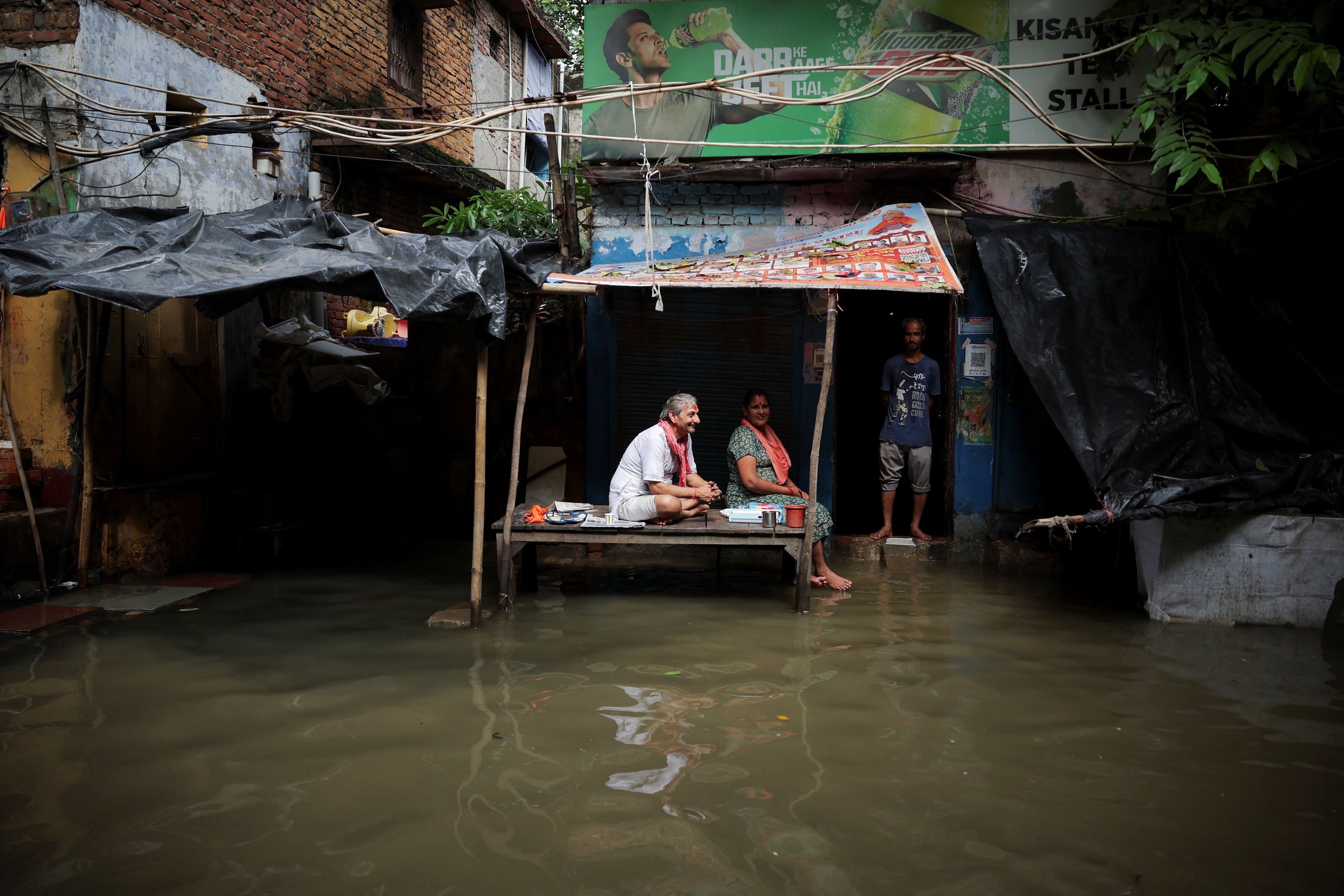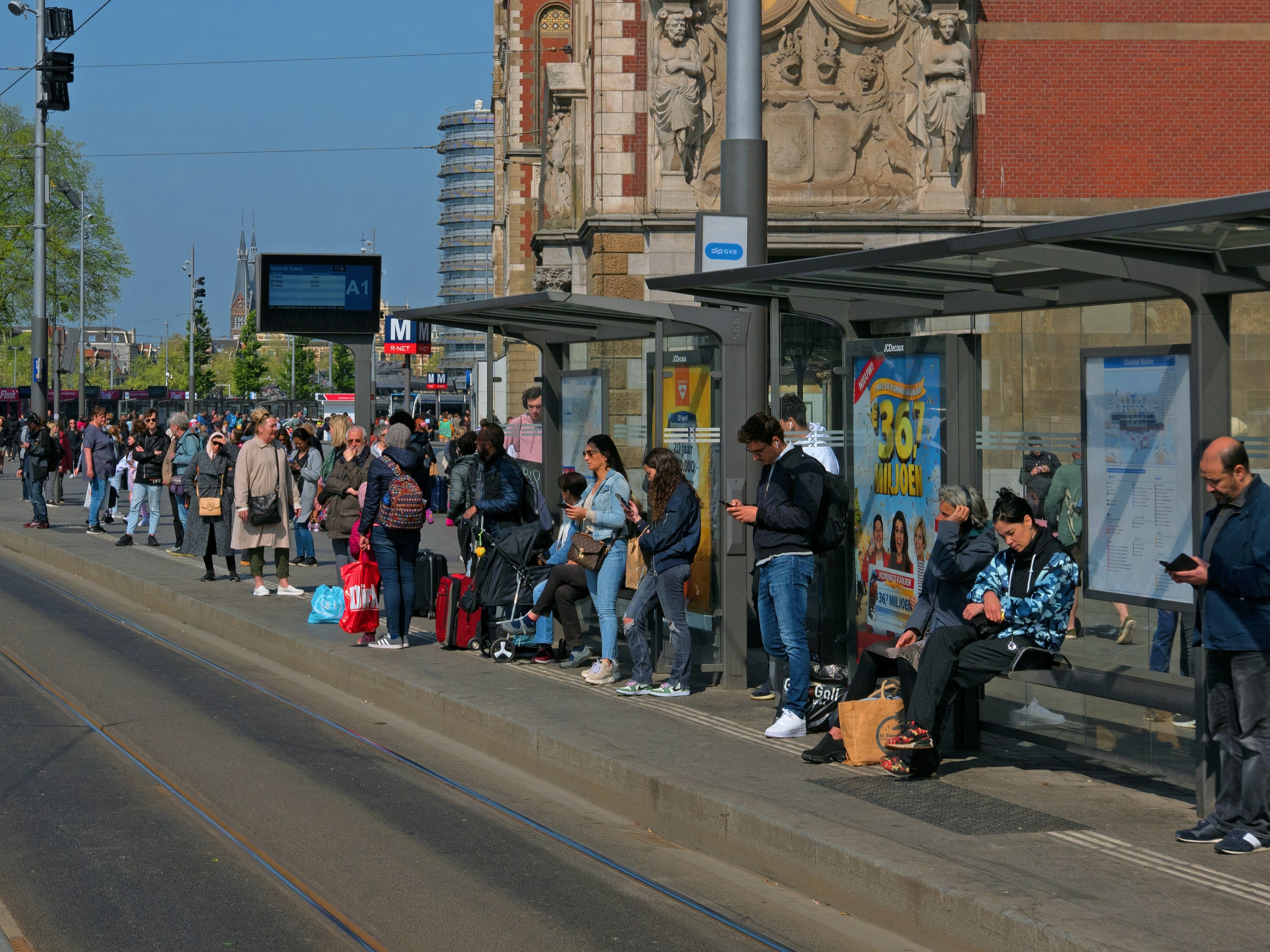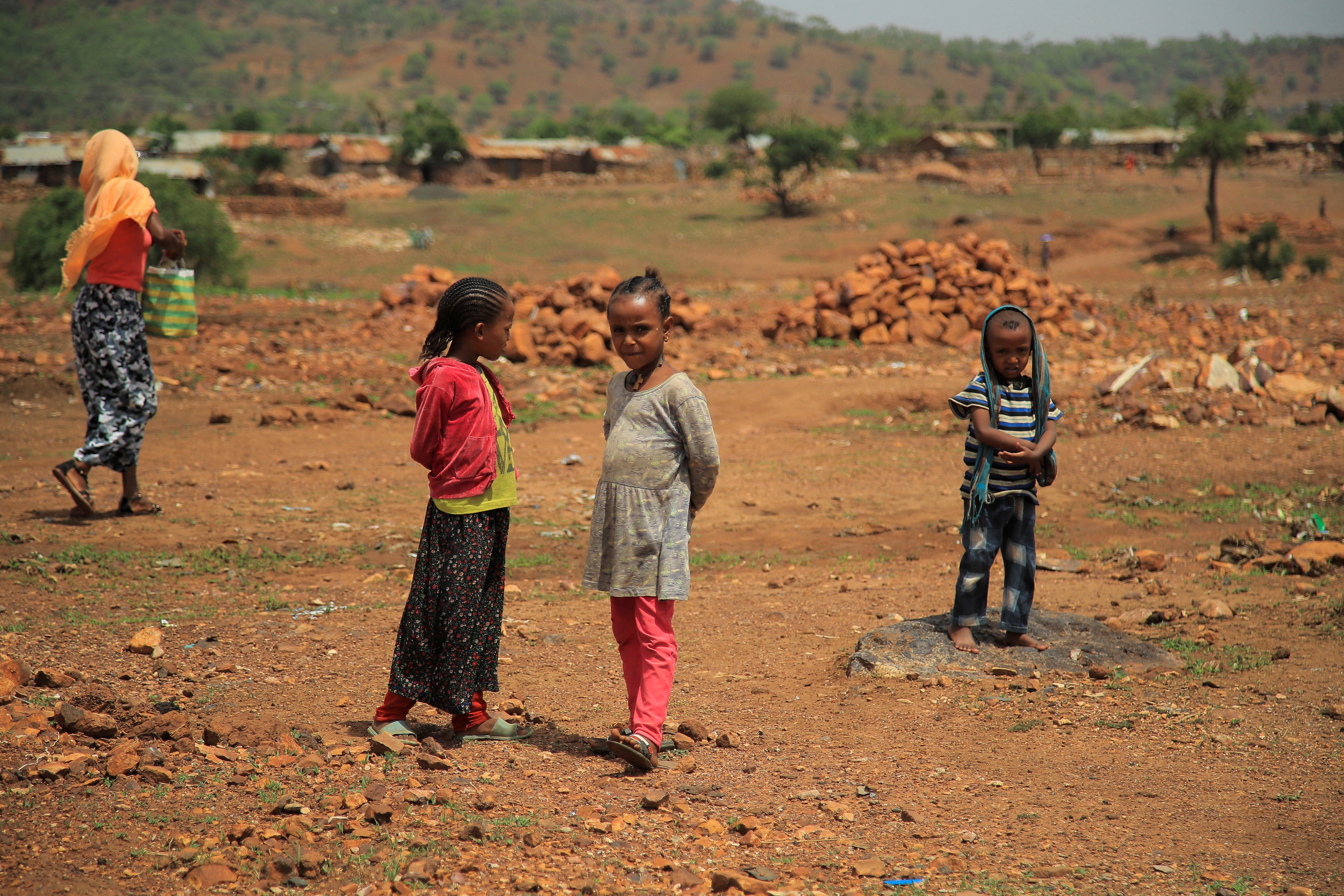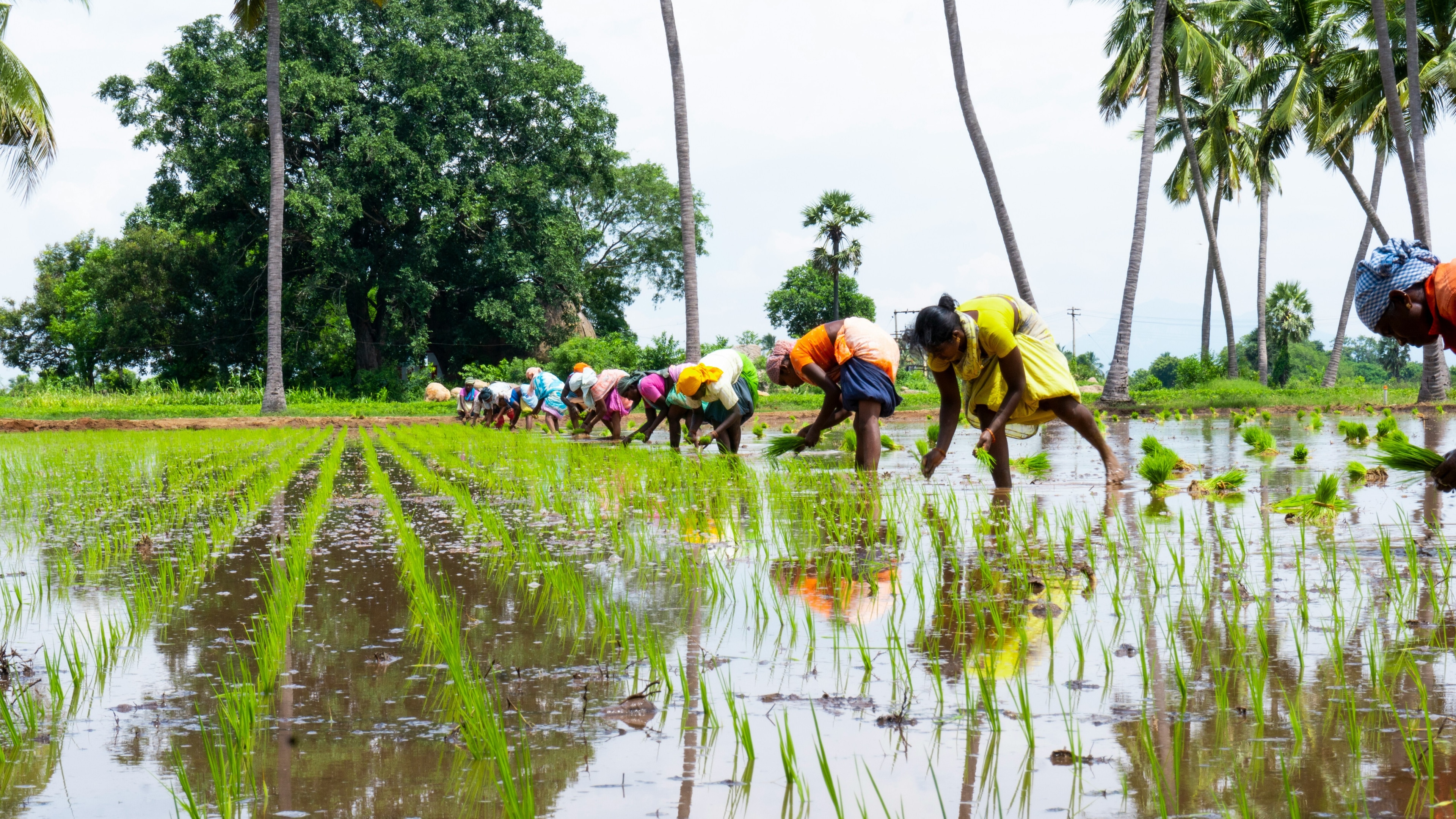The humanitarian impact of the crisis in Ukraine will be long-lasting

The number of people who have been internally displaced by the strife in Ukraine could reach seven million. Image: UNSPLASH/Markus Spiske
- The escalating conflict in Ukraine will lead to immense civilian casualties, soaring humanitarian needs, and likely one of the biggest new displacement crises in recent years, aid agencies warn.
- More than 600,000 thousand people have fled Ukraine, according to the UNHCR, and the refugee agency estimates that 4 million will flee in the coming months.
- The Ukrainian crisis will lead to large numbers of internally displaced people as well, and its impact will be felt by a lot of people for a long time.
The escalation of an ongoing conflict
The conflict in Eastern Ukraine between the national military and Russian-backed separatists has been ongoing since 2014. In these last eight years, the conflict has claimed 13,000 lives, 3,400 of them civilians, and has displaced more than 850,000 people. But how did we get here?
The Ukrainian revolution of 2014 led to pro-Russian unrest in the country, which ultimately resulted in Russia annexing the strategically important region of Crimea and pro-Russian separatists starting a conflict with Ukrainian government forces in the Donbas region. Aid agencies – at the time assisting 2.5 million people, including 800,000 still living close to the contact line – were faced with increasing obstacles when trying to deliver aid to areas held by the separatists.
After eight years, conflict in Eastern Ukraine has put over three million people in urgent need of humanitarian aid – and the situation has only been exacerbated through the COVID-19 pandemic, as people have become more vulnerable and more dependent on the continuous delivery of protection and humanitarian aid.
The severity of the current crisis
Even before the current escalation of violence, there were close to three million people in need of humanitarian aid in Ukraine. The United Nations High Commissioner for Refugees (UNHCR) is estimating that four million refugees from Ukraine will flee to neighbouring countries in the coming months.
But that is not all: The UN estimates that 12 million people inside Ukraine will need relief and protection. This would mean that a total of 16 million people will need humanitarian assistance – possibly making it the largest humanitarian crisis on the European continent in decades, as Janez Lenarčič, European Commissioner for Humanitarian Aid and Crisis Management, said in a statement.
"We are witnessing what could become the largest humanitarian crisis on our European continent in many, many years. The needs are growing as we speak."
The impact on families and children is especially concerning. Hundreds of thousands of Ukrainian children are without safe water, heating and electricity because of damage to critical infrastructure. They are enduring profound trauma because of the violence around them, and children have been among the civilians injured by explosive weapons in wide impact areas.
The office of the UN High Commissioner for Human Rights is urging civilians in Ukraine to avoid widely populated areas for this reason, especially because the number of civilians injured through these kinds of strikes is increasing.
This is how the global community is responding
Reactions to the growing humanitarian situation inside and outside of Ukraine have been encouraging – as the whole world has been watching the crisis unfold. The US government has announced nearly $54 million in humanitarian assistance for the country. The European Union is coordinating emergency assistance and has stepped up its humanitarian aid. The European Commission announced an additional €90 million ($100 million) for emergency aid programmes to help civilians affected by the conflict.
This week, the UN launched the coordinated emergency appeals for a combined $1.7 billion for the next three months to urgently deliver humanitarian support to people in Ukraine and refugees in neighbouring countries.
For people and combatants inside Ukraine, it’s vital that all parties adhere to international humanitarian law to ensure humanitarian access, the International Committee of the Red Cross (ICRC) urges. The ICRC is appealing for CHF150 million ($163 million) to assist people in need due to intensified hostilities in Ukraine.
Considering possible ways to help those fleeing the war in Ukraine from the outside, the EU has granted Ukrainians the right to stay and work in the 27-nation bloc for up to three years. Many civilians have also taken it upon themselves to help by taking food supplies, medication, clothes and other essentials to the borders where refugees have been crossing over.
But financing will be needed for a longer amount of time as the crisis unfolds long-term – and other countries are affected, too. The World Bank and the International Monetary Fund have issued a statement in support of Ukraine and are preparing options for such support, including fast-disbursing financing.
The importance of respecting the dignity of all refugees
Several reports have highlighted that Africans and nationals from other countries fleeing from Ukraine have been denied entry into trains or have been kept from crossing borders into neighbouring countries to seek shelter. It is of utmost importance that all those fleeing from conflict are treated equally.
The Ukraine crisis marks yet another crisis that is impacting those most vulnerable, forcing them to flee with an uncertain future ahead, and adding to large global displacement numbers.
Whether the global community is witnessing a humanitarian crisis in Ukraine, Ethiopia or Syria, all refugees must be respected and granted international protection – as well as their human dignity. The global outcry and media attention that Ukraine has been receiving should reflect a new standard for humanitarian crises and humans seeking refuge worldwide.
Globally, the UNHCR estimates 82.4 million forcibly displaced people, a record number of people needing protection and assistance. The Ukrainian crisis will lead to immense numbers of internally displaced people and refugees fleeing from conflict in the country, and its impact will be felt by many for the months and years to come.
The global community must continue to support the country for as long as the crisis lasts.
Don't miss any update on this topic
Create a free account and access your personalized content collection with our latest publications and analyses.
License and Republishing
World Economic Forum articles may be republished in accordance with the Creative Commons Attribution-NonCommercial-NoDerivatives 4.0 International Public License, and in accordance with our Terms of Use.
The views expressed in this article are those of the author alone and not the World Economic Forum.
Stay up to date:
Ukraine
Forum Stories newsletter
Bringing you weekly curated insights and analysis on the global issues that matter.
More on Resilience, Peace and SecuritySee all
Shoko Noda and Kamal Kishore
October 9, 2025







